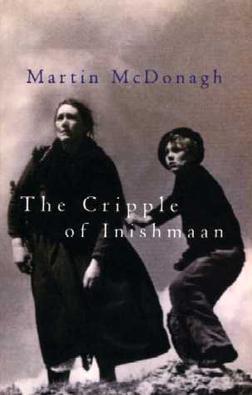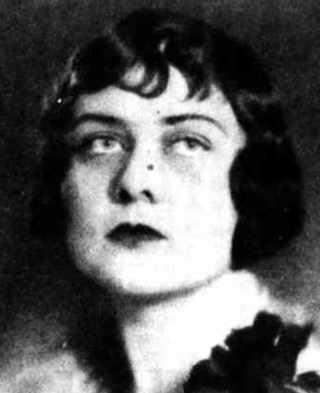Related Research Articles

Martin Faranan McDonagh is a British-Irish playwright and filmmaker. He is known for his absurdist dark humour which often challenges the modern theatre aesthetic. He has won numerous accolades including an Academy Award, six BAFTA Awards, two Golden Globe Awards, and three Olivier Awards, with nominations for five Tony Awards.

Kenneth George Hall was an Australian film producer and director, considered one of the most important figures in the history of the Australian film industry. He was the first Australian to win an Academy Award.
Anna Maria Manahan was an Irish stage, film and television actress.
Efftee Studios was an early Australian film and theatre production studio, established by F.W. Thring in 1930. It existed until Thring's death in 1935. Initially Efftee Films was based in Melbourne and used optical sound equipment imported from the US.

The Cripple of Inishmaan is a dark comedy by Martin McDonagh who links the story to the real life filming of the documentary Man of Aran.

June Clyde was an American actress, singer and dancer known for roles in such pre-Code films as A Strange Adventure (1932) and A Study in Scarlet (1933).
Ian Dalrymple was a British screenwriter, film director, film editor and film producer.
The Cheaters is a 1930 Australian silent film directed by Paulette McDonagh and starring Isabel McDonagh. Phyllis McDonagh worked as art director. The McDonagh sisters made a number of self-funded films together in the late 1920s and early 1930s.

The surname McDonagh, also spelled MacDonagh is from the Irish language Mac Dhonnchadha, and is now one of the rarer surnames of Ireland.

Harold Huth was a British actor, film director and producer.
Two Minutes Silence is a 1933 Australian melodrama set during World War I based on Les Haylen's anti-war play. It was the fourth and last feature film by the Sydney-based McDonagh sisters, Paulette, Isobel and Phyllis, who called it "by far the best picture we produced". It is considered Australia's first anti-war movie and is a lost film.

Paulette de Vere McDonagh, was an Australian film director, who often worked in collaboration with her sisters Phyllis McDonagh and Isabel McDonagh. In 1933 it was claimed she was one of only five female film directors in the world.

Phyllis Glory McDonagh was an Australian film producer, production designer and journalist, who often worked in collaboration with her sisters Paulette and Isabella.

Isabella Mercia McDonagh, also known as Marie Lorraine, was an Australian actress who often worked in collaboration with her sisters Paulette and Phyllis. Isabella, alongside her two sisters made history by owning and running a film production company, therefore becoming the first Australian women to do so.
Those Who Love is a 1926 silent film, produced in Australia, about the son of a knight who falls in love with a dancer. Only part of the film survives today and it is held by the National Film and Sound Archive.
Percy John Ramster, better known as P.J. Ramster, was an Australian film director. He also ran an acting school, and his students often appeared in his films.
John Faulkner was a British-Australian inventor and actor of theatre and film. He appeared in two early vehicles for sports star Snowy Baker, The Enemy Within (1918), and The Lure of the Bush (1918), as well as movies from directors Raymond Longford, Franklyn Barrett, Paulette McDonagh, and Beaumont Smith.
Tremlet C. Carr was an American film producer, closely associated with the low-budget filmmaking of Poverty Row. In 1931 he co-founded Monogram Pictures, which developed into one of the leading specialist producers of B pictures in Hollywood.
William M. Pizor (1890–1959) was a pioneering film producer who also had a distribution company, Imperial Distributing Corporation. He was also president of production company Imperial Pictures. His son Irwin Pizor succeeded him in the film business.
References
- ↑ McDonagh Productions at National Film and Sound Archive
- ↑ "The McDonagh Sisters at the Women Film Pioneers Project". Archived from the original on 6 August 2019.